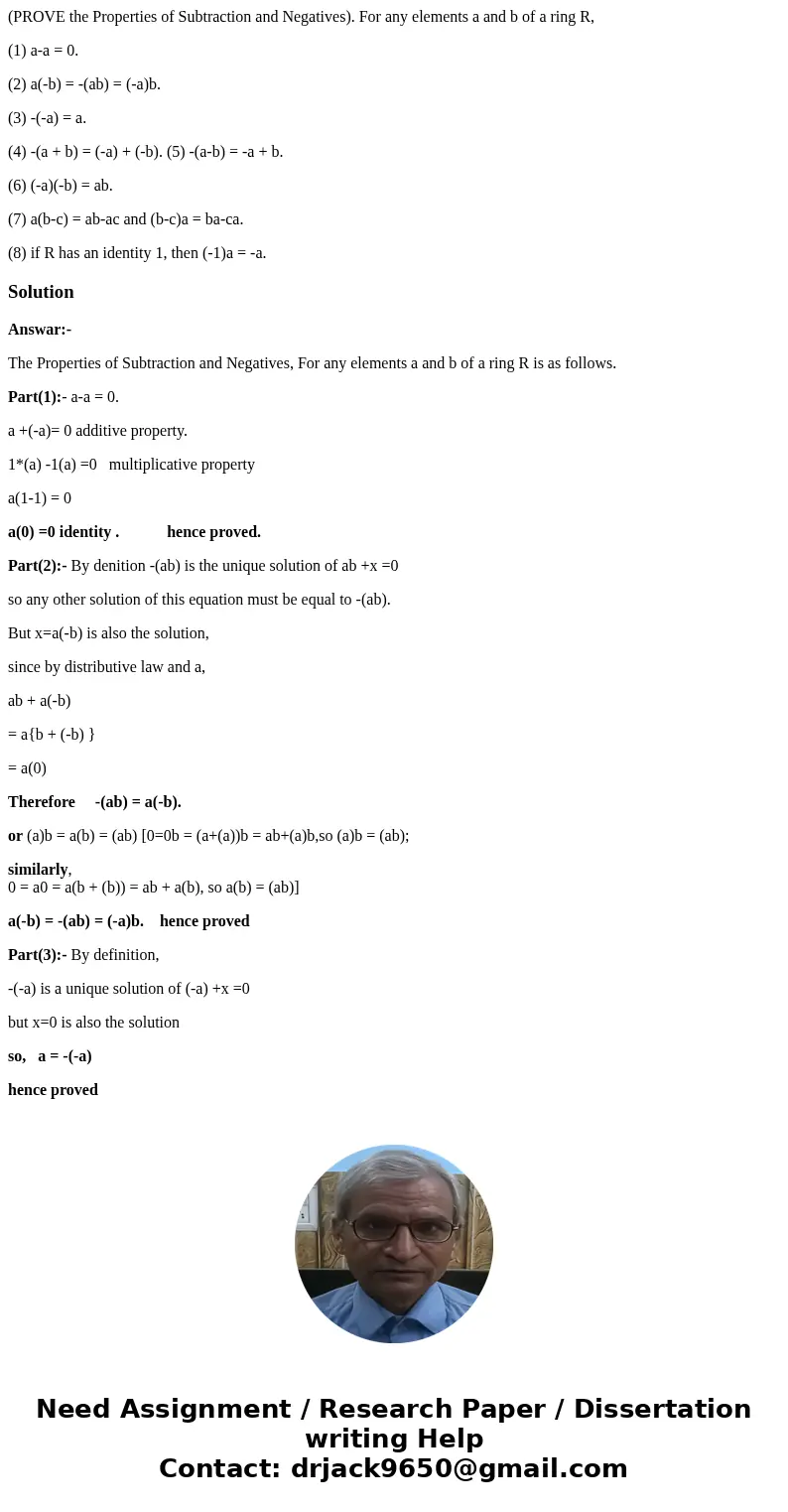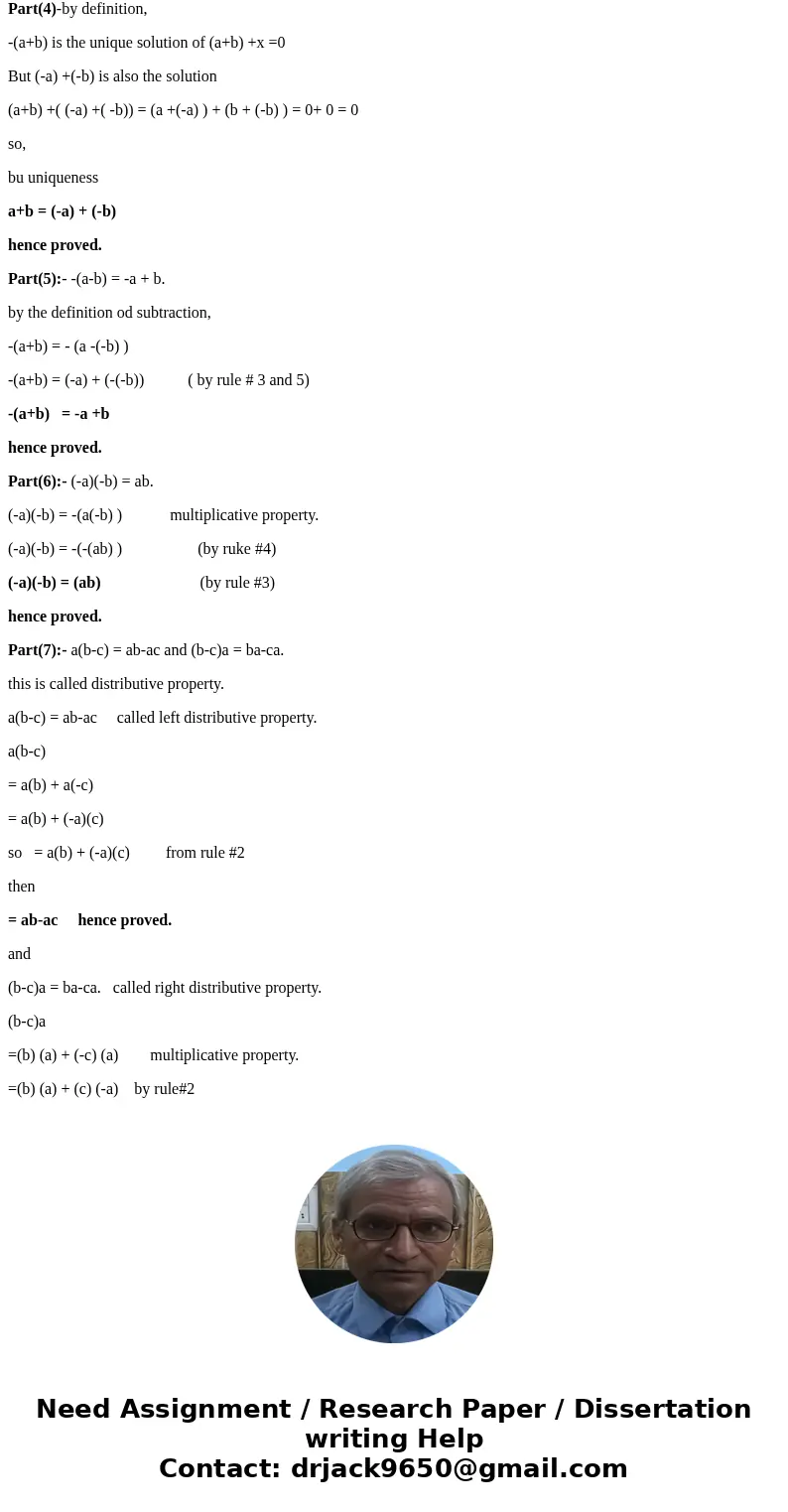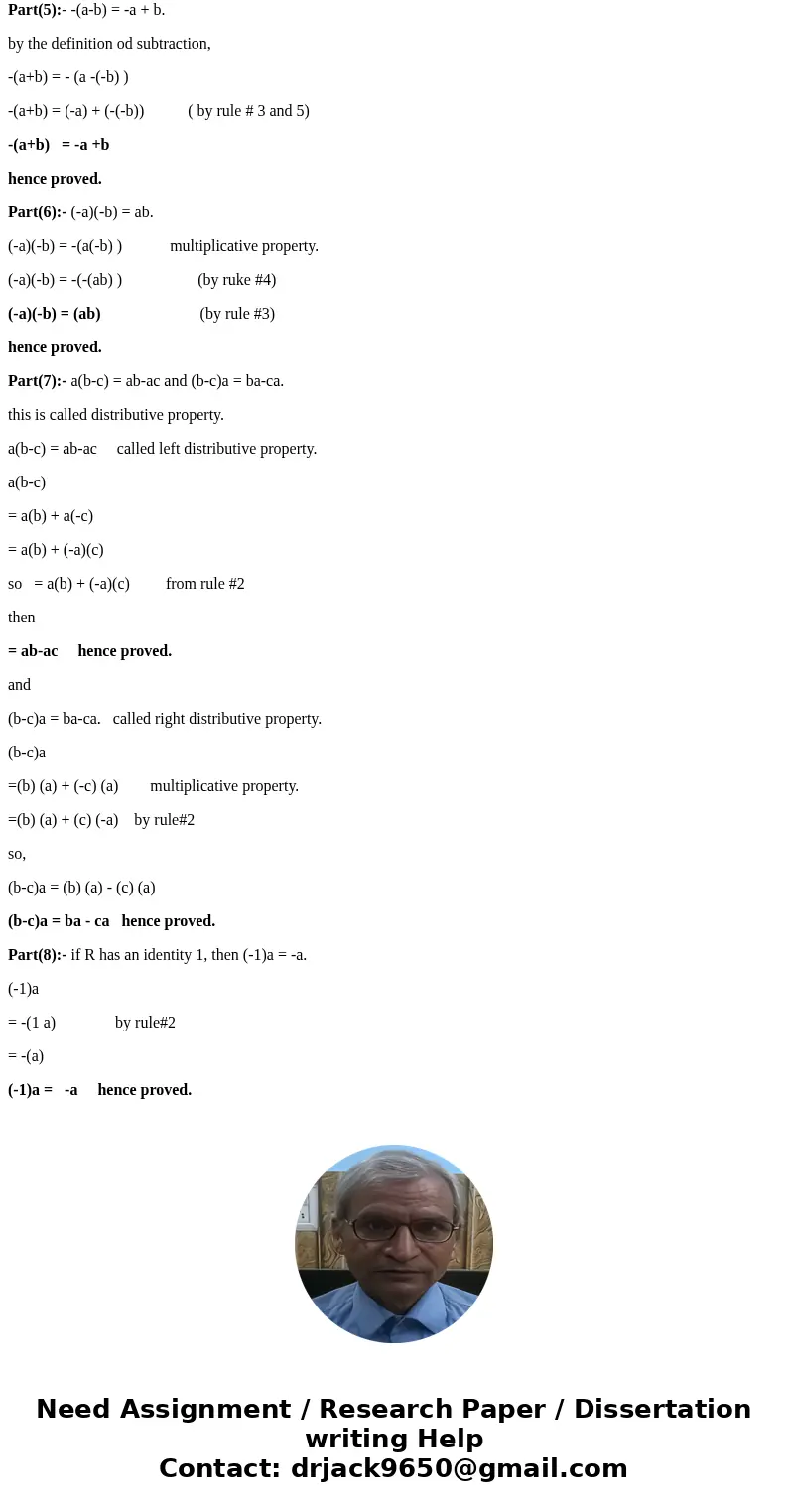PROVE the Properties of Subtraction and Negatives For any el
(PROVE the Properties of Subtraction and Negatives). For any elements a and b of a ring R,
(1) a-a = 0.
(2) a(-b) = -(ab) = (-a)b.
(3) -(-a) = a.
(4) -(a + b) = (-a) + (-b). (5) -(a-b) = -a + b.
(6) (-a)(-b) = ab.
(7) a(b-c) = ab-ac and (b-c)a = ba-ca.
(8) if R has an identity 1, then (-1)a = -a.
Solution
Answar:-
The Properties of Subtraction and Negatives, For any elements a and b of a ring R is as follows.
Part(1):- a-a = 0.
a +(-a)= 0 additive property.
1*(a) -1(a) =0 multiplicative property
a(1-1) = 0
a(0) =0 identity . hence proved.
Part(2):- By denition -(ab) is the unique solution of ab +x =0
so any other solution of this equation must be equal to -(ab).
But x=a(-b) is also the solution,
since by distributive law and a,
ab + a(-b)
= a{b + (-b) }
= a(0)
Therefore -(ab) = a(-b).
or (a)b = a(b) = (ab) [0=0b = (a+(a))b = ab+(a)b,so (a)b = (ab);
similarly,
0 = a0 = a(b + (b)) = ab + a(b), so a(b) = (ab)]
a(-b) = -(ab) = (-a)b. hence proved
Part(3):- By definition,
-(-a) is a unique solution of (-a) +x =0
but x=0 is also the solution
so, a = -(-a)
hence proved
Part(4)-by definition,
-(a+b) is the unique solution of (a+b) +x =0
But (-a) +(-b) is also the solution
(a+b) +( (-a) +( -b)) = (a +(-a) ) + (b + (-b) ) = 0+ 0 = 0
so,
bu uniqueness
a+b = (-a) + (-b)
hence proved.
Part(5):- -(a-b) = -a + b.
by the definition od subtraction,
-(a+b) = - (a -(-b) )
-(a+b) = (-a) + (-(-b)) ( by rule # 3 and 5)
-(a+b) = -a +b
hence proved.
Part(6):- (-a)(-b) = ab.
(-a)(-b) = -(a(-b) ) multiplicative property.
(-a)(-b) = -(-(ab) ) (by ruke #4)
(-a)(-b) = (ab) (by rule #3)
hence proved.
Part(7):- a(b-c) = ab-ac and (b-c)a = ba-ca.
this is called distributive property.
a(b-c) = ab-ac called left distributive property.
a(b-c)
= a(b) + a(-c)
= a(b) + (-a)(c)
so = a(b) + (-a)(c) from rule #2
then
= ab-ac hence proved.
and
(b-c)a = ba-ca. called right distributive property.
(b-c)a
=(b) (a) + (-c) (a) multiplicative property.
=(b) (a) + (c) (-a) by rule#2
so,
(b-c)a = (b) (a) - (c) (a)
(b-c)a = ba - ca hence proved.
Part(8):- if R has an identity 1, then (-1)a = -a.
(-1)a
= -(1 a) by rule#2
= -(a)
(-1)a = -a hence proved.



 Homework Sourse
Homework Sourse